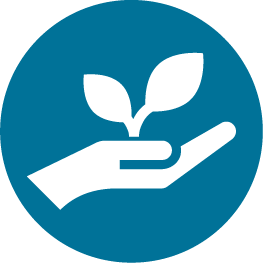Project Lead: Martin Breed (Flinders University)
Project Team: Sacha Jellinek (University of Melbourne), Heidi Rogers, Riley Hodgson (Flinders University), Kerri Muller (AU2100), Jamie Wood (University of Adelaide), Bri Le Busque (University of South Australia), Jason Nicol (SARDI), Ross Oke, Leah Hunter (Second Nature Conservancy), Holly Parsons, Caroline Paterson and Birdlife volunteers (Birdlife Australia), Jonathan Tuck (Nature Glenelg Trust), Sam Blight (Coorong District Council)

Ecosystem restoration through revegetation provides a means to reduce the negative impacts of habitat loss and fragmentation on biodiversity.
The Coorong, Lower Lakes Murray Mouth Recovery Program (2011-16) undertook extensive revegetation across five different vegetation communities in response to the Millennium Drought (1996–2010). This federal and state funded program ($137 million) led to the revegetation of over five million native plants.
In 2015, detailed vegetation data were collected at 80 revegetation sites and 20 remnant sites. Comprehensive bird survey data were also collected at 40 of the 80 revegetation sites and also at each of the 20 remnant sites.
The most favourable remnant vegetation sites were used to compare the revegetation plantings, thus determining the degree to which the revegetation plantings mitigated adverse ecosystem impacts.
This project is (a) evaluating the ecosystem responses to historical landscape revegetation in the CLLMM region, (b) assessing the sociocultural perspectives of landscape revegetation in the region, and (c) provide future recommendations on landscape revegetation into the region.
The project will revisit previous revegetation plantings in spring 2025 through:
A semi-quantitative surveying with landholders, natural resource management workers, community groups and First Nations around the lakes will be undertaken to assess the costs and benefits of revegetation and how the lakeshore environment has responded to the Millennium drought, refilling of the lakes and subsequent higher water levels. This will capture any improvements to revegetation methods developed over the intervening years.
Synthesis of the ecological and sociocultural findings and insights from the surveys and mapping will be enhanced with workshop- style consultation of First Nations and the local community to access broader expertise to make future recommendations for activities relating to CLLMM landscape revegetation.
The project has a range of potential implications for management, including:
First Nations culture and traditions are rooted within an ancient historical connection with country and countless generations of studying their local environment as a way of life. First Nations traditional ways of life, including land and water management, sustainable harvesting, and the conservation of local species can provide vital perspectives into the ways we manage the lands and waters into the future.
This project works towards restoration and impact reduction on the culturally significant aquatic vegetation species associated with the wetlands and waterways in the CLLMM region. First Nations people in this region hold various cultural histories, traditions and practices which utilise the native vegetation of their country.
Additionally, there is a large number of culturally significant native fauna that access their vegetation as habitat or breeding grounds, placing critical importance on the vegetation for Nga:Tjar (totem specieis) retention in the region.